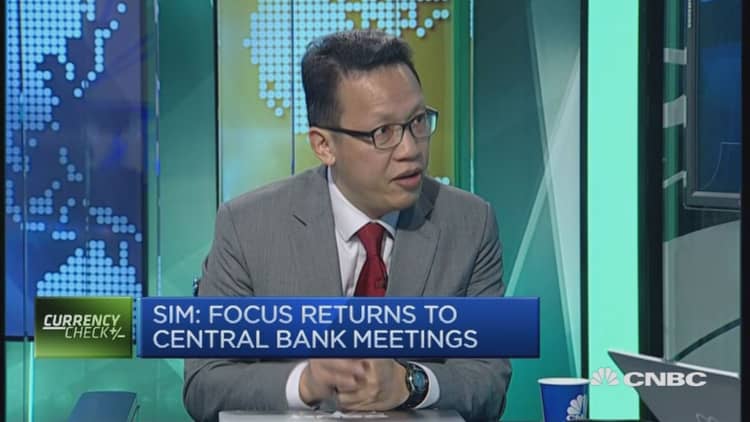Australian Prime Minister Malcolm Turnbull has warned he will dissolve parliament and call early federal elections if his reforms are not approved just six months into the job, marking yet another sharp turn in the tumultuous world of politics Down Under.
Announced early on Monday, Turnbull's decision reflects increasing frustration with crossbenchers, or senators from minor parties, who have repeatedly blocked key legislation that the ruling Liberal Party deems essential for the economy.
At the crux of the issue is Turnbull's desire to reinstate the Australian Building and Construction Commission (ABCC), the construction industry's watchdog, which was abolished in 2012.
The Senate obstructed the bill at a meeting in February and if opposition continues at a scheduled review next month, it will be the second rejection and provide Turnbull ammunition to dissolve both upper and lower houses of parliament, according to Australian law. Under that scenario, Turnbull will move federal elections to July 2 from their scheduled date of January 2017 and bring forward the federal budget to May 3.
Early elections are essentially a means for Turnbull to consolidate his leadership and avoid suffering the same fate of his predecessor Tony Abbott, political scientists said.
Turnbull came to power last September after toppling former Liberal leader Tony Abbott in a snap vote after incessant criticism of the latter's leadership style, particularly Abbott's inability to pass reforms in parliament, a problem that Turnbull now faces.
"When Turnbull came to leadership, he claimed he would work better with crossbenchers [than Abbott] but that hasn't panned out. Elections are a way to resolve that impasse," explained Peter Chen, senior lecturer at the University of Sydney.
"He needs to win an election in his own right so he can put his stamp on the government," agreed Sarah Maddison, associate professor of politics at the University of Melbourne.
A new poll published by The Australian on Monday revealed Turnbull's approval rating as prime minister entered negative territory for the first time since he assumed power, casting doubt on his party's ability to win the July elections. Australia's political system is known for being notoriously volatile, having seen five prime ministers in as many years, with Turnbull set to become the sixth leader since 2010 if he loses the vote.

Economic impact
Early elections kill the possibility of the Reserve Bank of Australia [RBA] cutting interest rates in the second or third quarter, which is a net positive for the Australian dollar, explained IG market strategist Angus Nicholson.
"They [the RBA] will not want their rate decision to be viewed as trying to affect the outcome of the election ... RBA governor, Glenn Stevens, is also set to retire in September, meaning that the first meeting any newly appointed governor could change monetary policy would be in November."
But the uncertainty caused by a sooner-than-expected election campaign may be problematic for the economy, warned Shane Oliver, head of investment strategy and chief economist at AMP Capital.
On the bright side however, Canberra could benefit from rational policy making if the Senate gets cleaned up with a double dissolution election, he said.
The problem of crossbenchers
Turnbull may have been emboldened in his inclination for early elections by a major change in Australia's voting system that was announced last week.
On Friday, the Senate passed measures that will make it harder for crossbenchers from entering parliament, thus enabling Turnbull to get rid of hostile micro-parties and install freshly-elected officials who may be more sympathetic to his agenda.
Senate voting in Australia is based on proportional representation, in which parties gain representation in proportion to their share of the vote.
"Proportional representation voting is designed to secure the election of several candidates in each state (twelve in the case of a double dissolution, six in the case of a regular half-Senate election) each of whom has obtained a number of votes equal to or exceeding a required quota (or proportion of votes) necessary for election. The quota is obtained by dividing the total number of formal votes by one more than the number of candidates to be elected, and adding one to the result," according to the government's website.
The system propagates the rise of crossbenchers, a hotly debated topic among political pundits.
On one hand, the presence of minority groups ensures the ruling party doesn't get their way, explained Chen.
"While it is true that crossbenchers disrupt parliament, most Australians would say they create more oversight over government. Legislation doesn't sail though, it gets closer scrutiny."
While Australia is officially a two-party political system, the number of people who vote for a third party is increasing at around 30 percent of the electorate, he noted.
But on the other side of the argument, the removal of micro-party leaders may produce more transparency and democracy in the Senate.
"Some of these crossbenchers are elected on a tiny percentage of the quota required to get into the Senate, which results in the election of people like Ricky Muir, senator of the Australian Motoring Enthusiasts Party," explained Maddison.
Muir is infamous for his lack of political experience and is nicknamed "the Roo Poo Senator" after a video surfaced of him throwing kangaroo faeces in a friendly fight.
Regardless, the greater problem is that Turnbull's policy goals still remain murky, she noted.
"It's unclear what his agenda will be until he wins an election...When he first became PM, there was a real sense he wanted to put his own stamp on the economy though tax reforms but so far he's danced around the issue of increasing GST [goods and services tax]."


